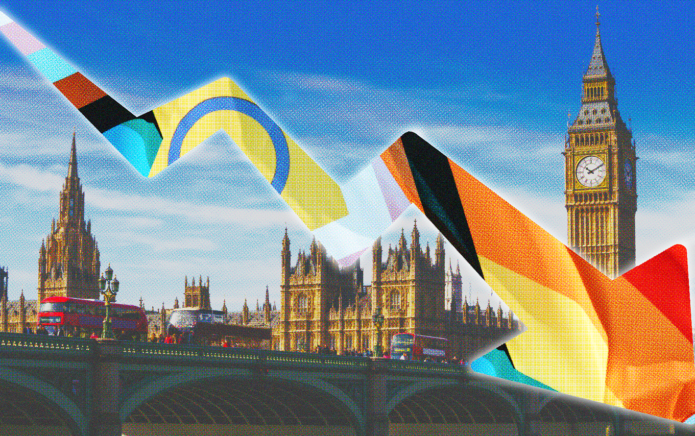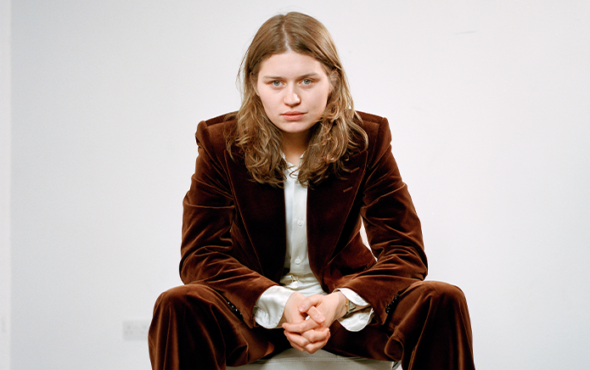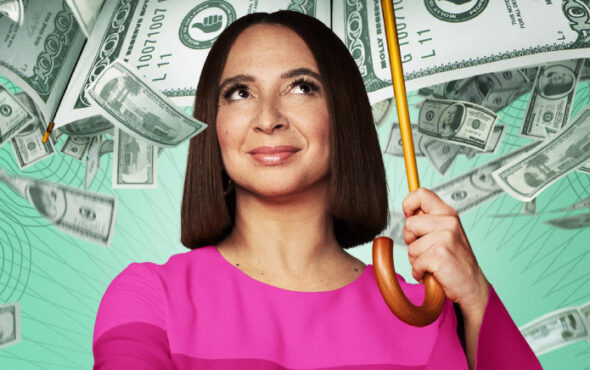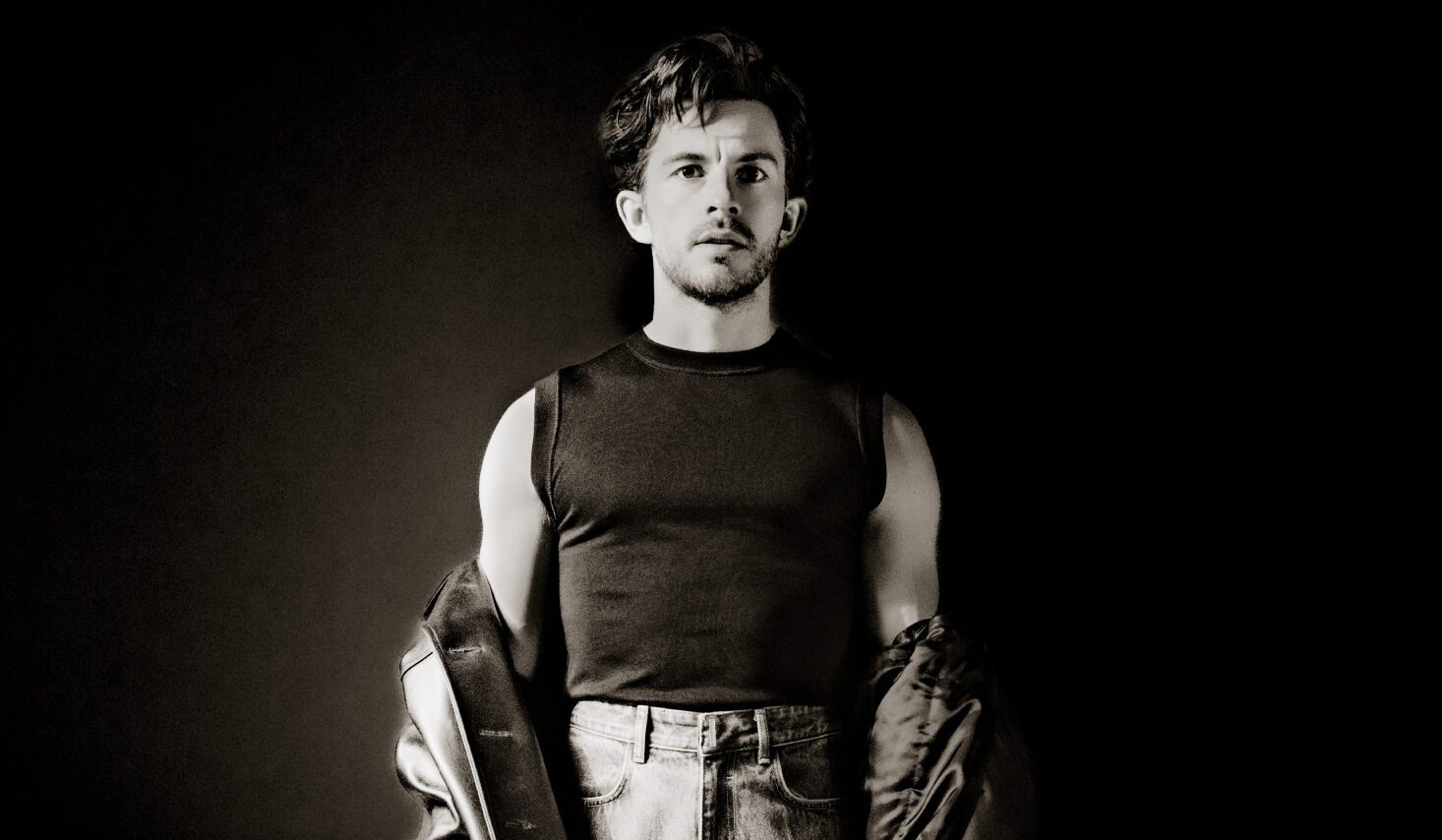
From his work in regency-era dramedy Bridgerton to groundbreaking period piece Fellow Travelers, as well as an upcoming role in the movie adaptation of classic musical Wicked, Jonathan Bailey is blazing a trail as one of the world’s most prominent out gay actors – and activists. This year’s GAY TIMES Honours sees the star succeed 2022’s recipient of the Changemaker Award, Tom Daley, as a result of his new partnership with the official LGBTQIA+ young people’s charity Just Like Us, a collaboration he describes as “critical and crucial”: “LGBTQIA+ issues don’t speak for themselves, and you need people to step forward. It’s important for me to be able to do that.”
Three days after his infectious, frenetic energy made its mark on the GAY TIMES set, a freshly bronzed Bailey is preparing for yet another shoot in Marrakech, Morocco. Speaking from Zoom, he laughs (slash glows): “I’ve been sent out early just to get a tan.” After reminiscing on his “spiritual” on-set discourse about zodiac signs with our fashion and creative director, the aforementioned frenetic energy is back on display as he immediately dives into his Just Like Us partnership. “I’ve worked with Albert Kennedy Trust before, and there’s so many different charities that I look forward to working with,” he says. “Just Like Us really hit something that I felt was important. One thing is, how can people describe what they’re feeling and experiencing if they don’t have the vocabulary and tools to do so?”
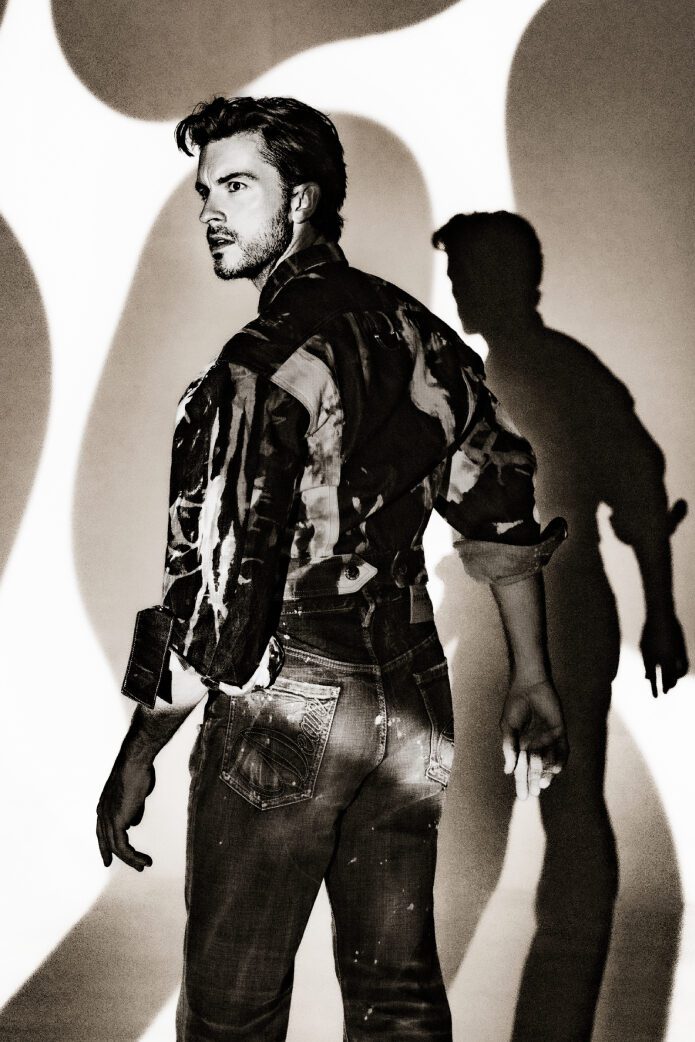
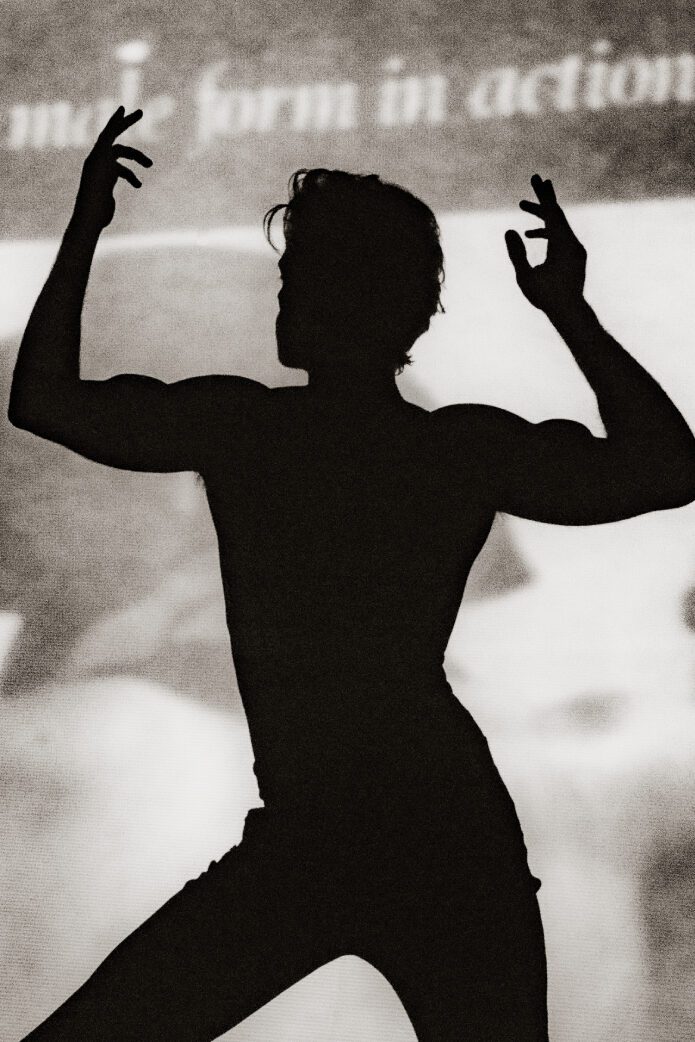
Since Just Like Us was founded in 2016, the charity has collaborated with primary schools, secondary schools and colleges across the UK to improve the lives of queer youth. Their annual, UK-wide celebration of LGBTQIA+ awareness, School Diversity Week, sees thousands of schools take part with student talks and assemblies led by their Ambassador Programme, which trains LGBTQIA+ people aged 18-25 to speak about allyship and their own personal experiences with sexuality and/or gender identity. Bailey tells us that the partnership comes after an “extraordinary shift of years of opportunities and possibilities” via his various projects, from Netflix’s smasher Bridgerton to Showtime’s new LGBTQIA+ series Fellow Travelers and his upcoming role as Fiyero in Wicked, which will also star Cynthia Erivo and Ariana Grande. “I now have a platform by which I can help guide people towards different narratives and causes.”
Laura Mackay, CEO of Just Like Us, praises the star’s activism in the following statement to GAY TIMES: “It speaks volumes about the calibre of our programmes that Jonathan Bailey has decided to join us as a patron. When we met with him to discuss the vital work we do, Jonathan spoke with vigour and sincerity of his unwavering commitment to improving the lives of LGBTQIA+ young people. I am so impressed with our Just Like Us team for creating this partnership and engaging such a wonderful role model. Jonathan oozes panache and gravitas, Just Like Us.”
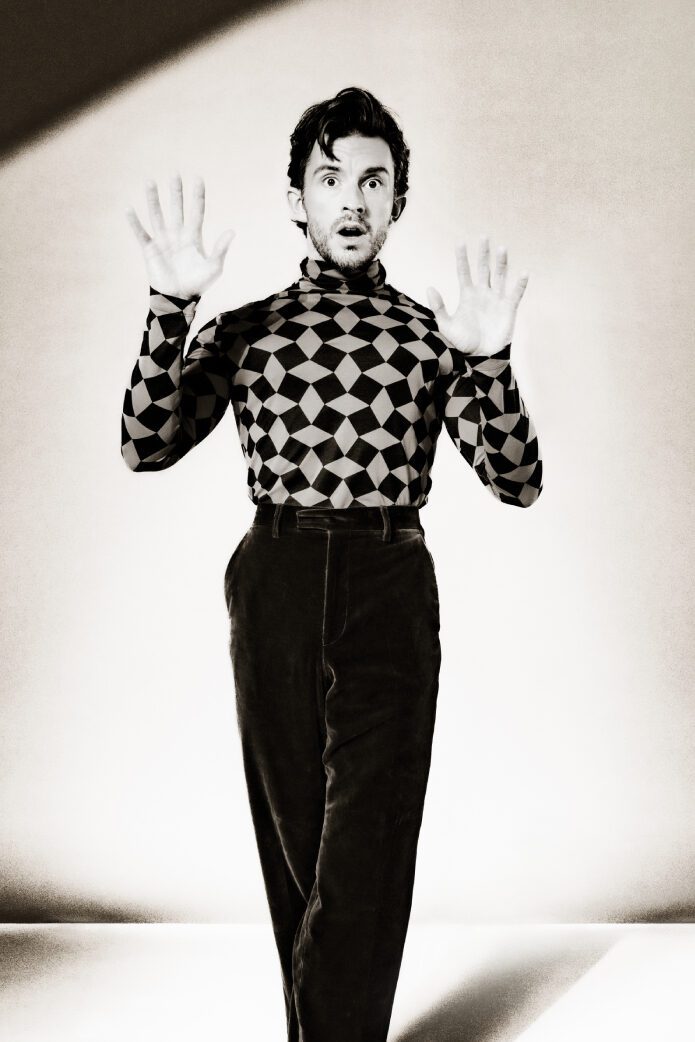
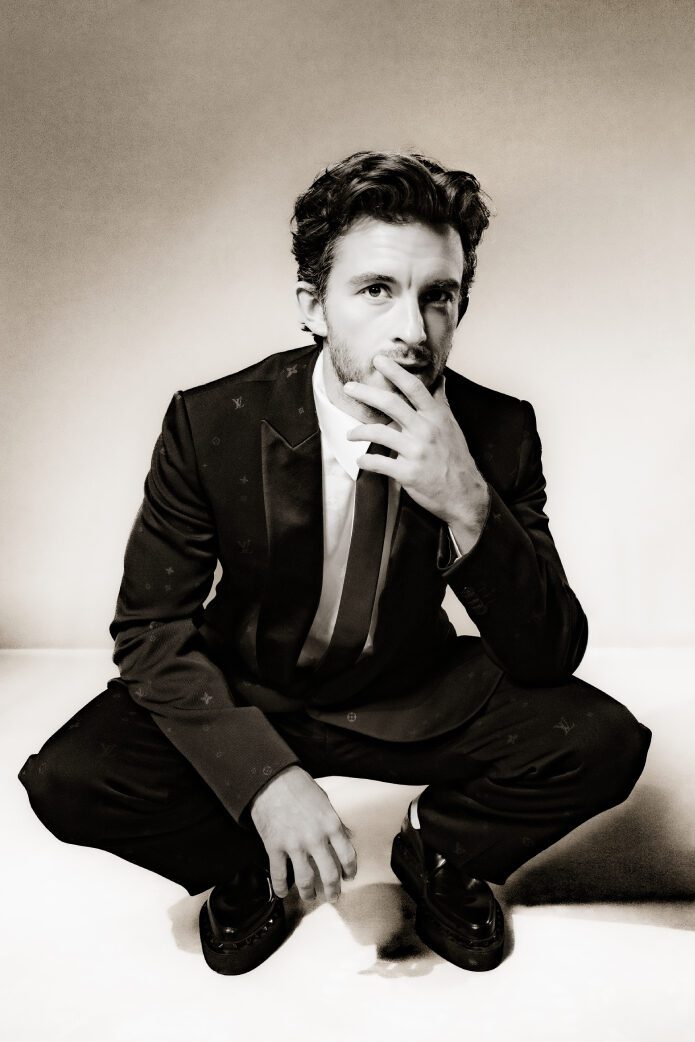
First visiting the charity at their headquarters in July, Bailey was “blown away” by the team and their ambassadors. Praising their “assuredness, confidence and eloquence” in what they aim to achieve in schools, Bailey admits that he would “never have been able to speak” on LGBTQIA+ issues like that at their age. “There’s so much for me to learn,” he shares. “There’s just something that happens when people speak authentically about their identity in a way that is generous, because they want to connect and tell their story. I was there with my jaw slightly on the floor. I thought, ‘If I had met either of these two people when I was younger, I would’ve been so starstruck’ because they had such ownership of who they are. They had such charisma without shying away from the unsurprising vulnerabilities and obstacles they’ve had to overcome.”
Describing Just Like Us as a “supernova ball of energy” due to their united front in transforming the way in which schools across the UK discuss LGBTQIA+ matters, Bailey lauds the diverse and “enriching” stories that have been told via their ambassadors. Over the past four years, GAY TIMES has partnered with the charity on numerous occasions, with their ambassadors sharing their unique upbringings and experiences with oppression, resistance and hope. A selection of stories featured this year include: ‘As a Brown, Asian, Muslim LGBTQIA+ person, Middlesex Pride felt like home’; ‘Films taught me that LGBTQIA+ and faith identities couldn’t co-exist – but that wasn’t true’; and ‘How Loveless by Alice Oseman helped me discover my aromanticism’.
“I was particularly struck by the fact that there seems to be a knock-on effect of how many people linked to the ambassadors and their friends then jump on board because they see how beneficial it can be,” explains Bailey. “Not just for the people in the schools who are receiving those speeches and interactive sessions, but also for the ambassadors themselves.” Just Like Us is notable for their Pride Groups programme, where they help secondary schools set up and run lunchtime clubs for LGBTQIA+ pupils and their allies to learn, make friends and have a place in school that is free from homophobia and transphobia. Additionally, Just Like Us launched their landmark Positive Futures report earlier this year. Surveying 3,695 people aged 18 to 25 from across the UK, including 1,736 LGBTQIA+ young adults, the report identifies a link between lack of LGBTQIA+ support in childhood and poorer outcomes for mental health, wellbeing and career prospects in adulthood.
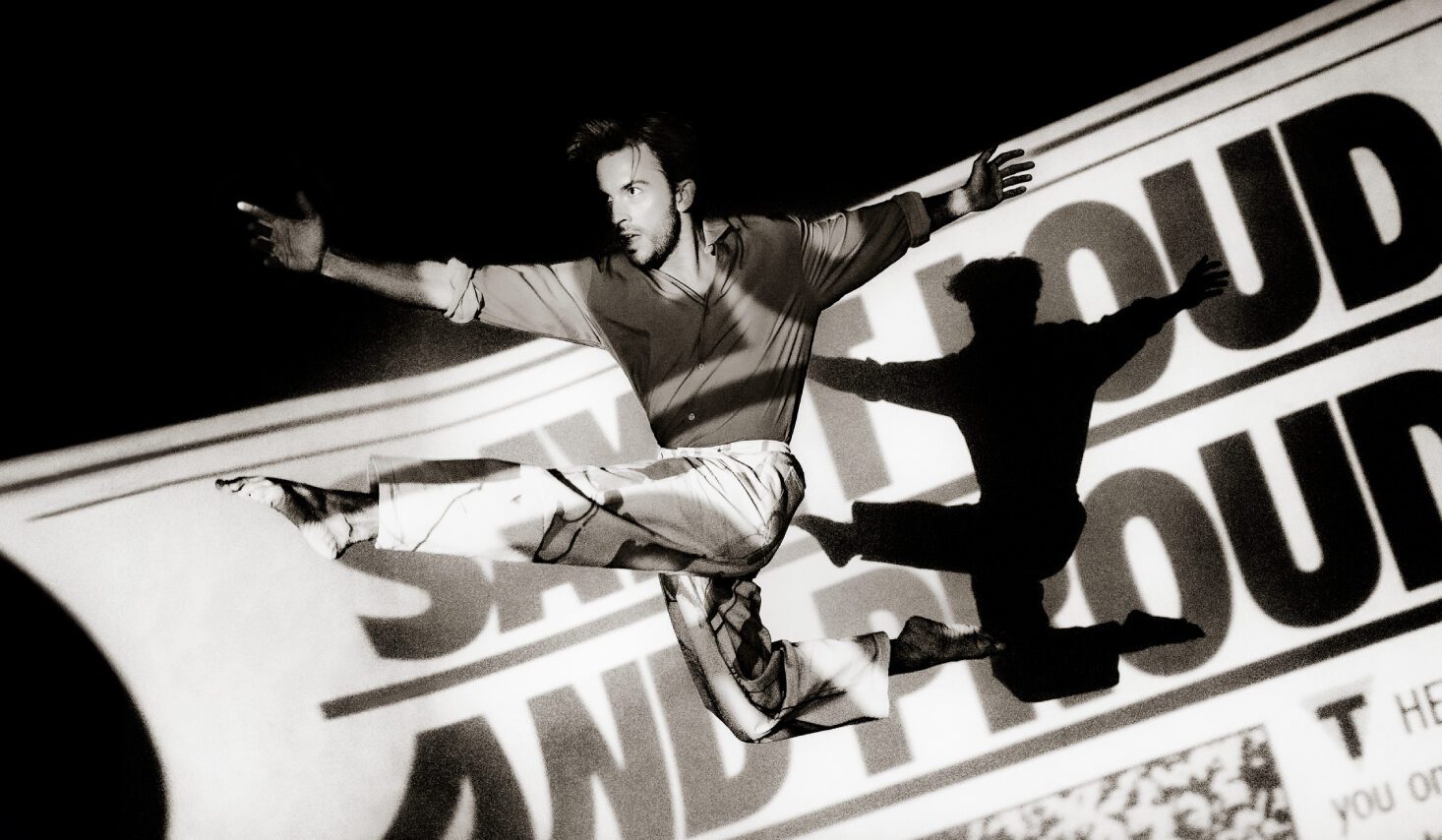
“It’s interesting hearing about Positive Futures and the difference between queer youth either being surrounded or in a nourished environment where people freely talk about identity and labels, versus kids that don’t,” he says. “The opportunities it gives them in young adulthood, as well as the increase and decrease in anxiety and panic attacks and depression; purely on the basis of their identities being acknowledged at a younger age. It’s huge. The correlation between conversation and the vocabulary that comes with that leading to a happier life is just… It’s undeniable.”
Clear communication about LGBTQIA+ issues was scarce – rather, non-existent – when Bailey was at school. The partnership forced him to reflect on his “own upbringing, what has changed and, more crucially, what hasn’t changed. One of those things for me was about education, schools, and growing up and my own youth.” For a recent Fellow Travelers campaign, Bailey returned to his home village in Brightwell-cum-Sotwell, a place where anyone who was “other” was “deemed not acceptable”. “That’s how I felt growing up, purely on the basis that I wasn’t aware of any gay people around me,” he says, criticising mainstream media’s archaic portrayal of LGBTQIA+ people at the time. “The media spun stories that were so negative towards the plight of the gay experience, so I didn’t really have access to anything that made me feel welcome or like I was going to be okay, and I was someone who was very aware of who I was. I talked about it from the age of eleven. I wonder what my life would’ve been like, had there been the vocabulary and ambassadors coming into my school. It would’ve definitely helped me feel more secure and to blossom quicker. For me, that sort of confidence in myself has come later on in life because of not having that.”
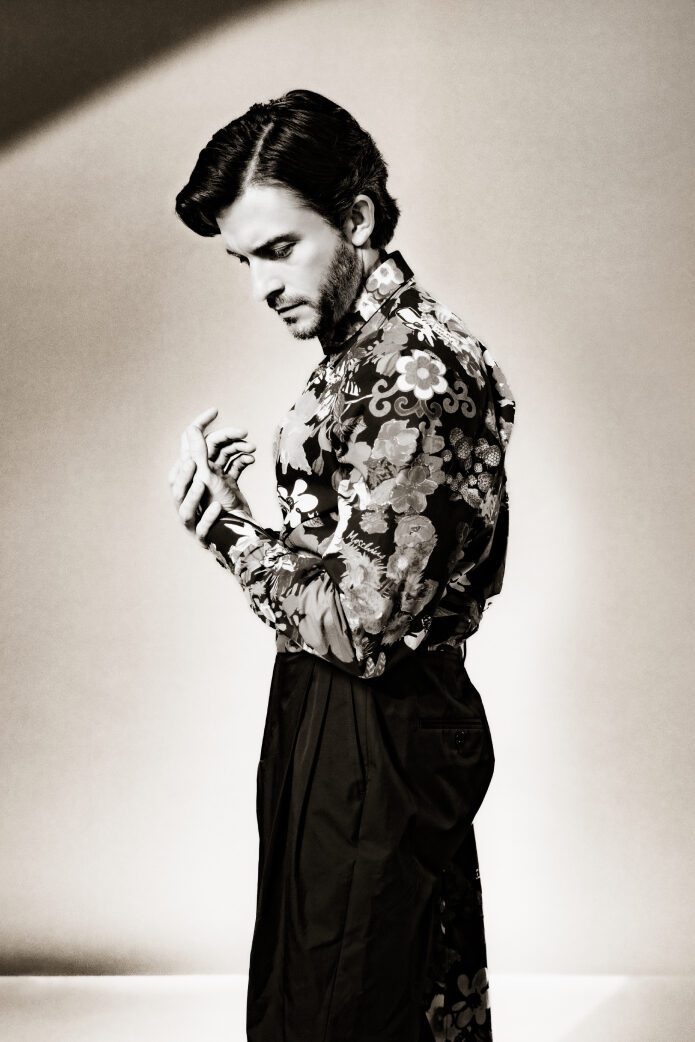
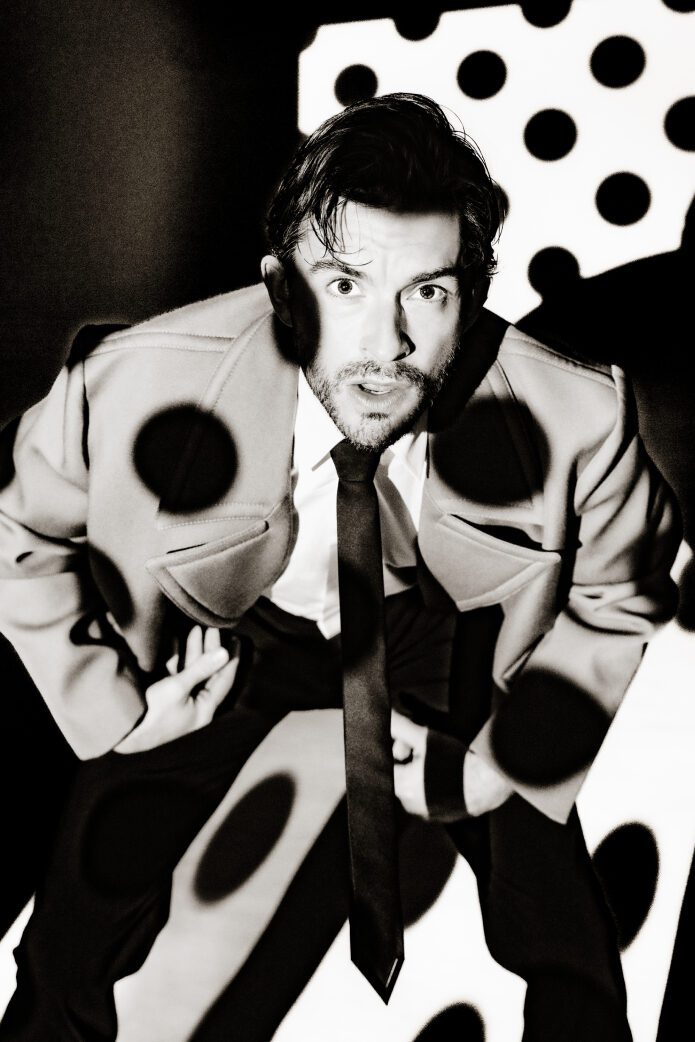
Immediately after Bailey completed his A-Levels in 2006 – the day of, actually – he moved to London to replace Andrew Garfield in a stage adaptation of the cult queer rom-com Beautiful Thing. As an 18-year-old from a rural village, the multicultural hub of London allowed him to “accrue information and experiences” that weren’t previously accessible to him. “It was meeting amazing people. I wasn’t anywhere near the point where I was going to come out to people I didn’t know, but I already had conversations with my friends,” he remembers. “So, moving to London was sort of a patient and nerdy acquisition of facts and experiences, which emboldened me to the point where I could finally talk to my family [about my sexuality], particularly my parents.” Assimilating to the inclusiveness of London made Bailey project his own growth onto his school, assuming that it would have been transformed into a “multicultural hub with clear access to education or information to anyone who wasn’t a white straight kid”. However, as he discovered: “It wasn’t, actually. What was true is that the same tree of Christianity and faith, with the same laminate piece of paper from when I was there, is still on the wall. Of course, I’ve got no judgement on any of that, other than it’s a reminder of the work that needs to be done for those who are trying to survive. How do you inspire people to understand things outside of their own experience, if they don’t need to or it doesn’t suit them or challenge them?”
Fellow Travelers ties in with his Just Like Us partnership, he says, as it has allowed Bailey to look at the “underside of the queer experience”. Airing on Paramount Plus in the UK, the series is based on Thomas Mallon’s acclaimed novel of the same name and follows the toxic romance between Bailey’s character Tim Laughlin and Matt Bomer’s Hawkins Fuller in the shadow of McCarthy-era Washington. Created by Oscar nominee Ron Nyswaner, Fellow Travelers chronicles their romance over the course of four decades whilst exploring the Vietnam War protests of the 1960s, the “drug-fueled disco hedonism” of the 1970s and the AIDS crisis of the 1980s. His first major LGBTQIA+ project, Bailey says “you can’t get more queer than Fellow Travelers” and adds that “it’s the gayest show I could find.”
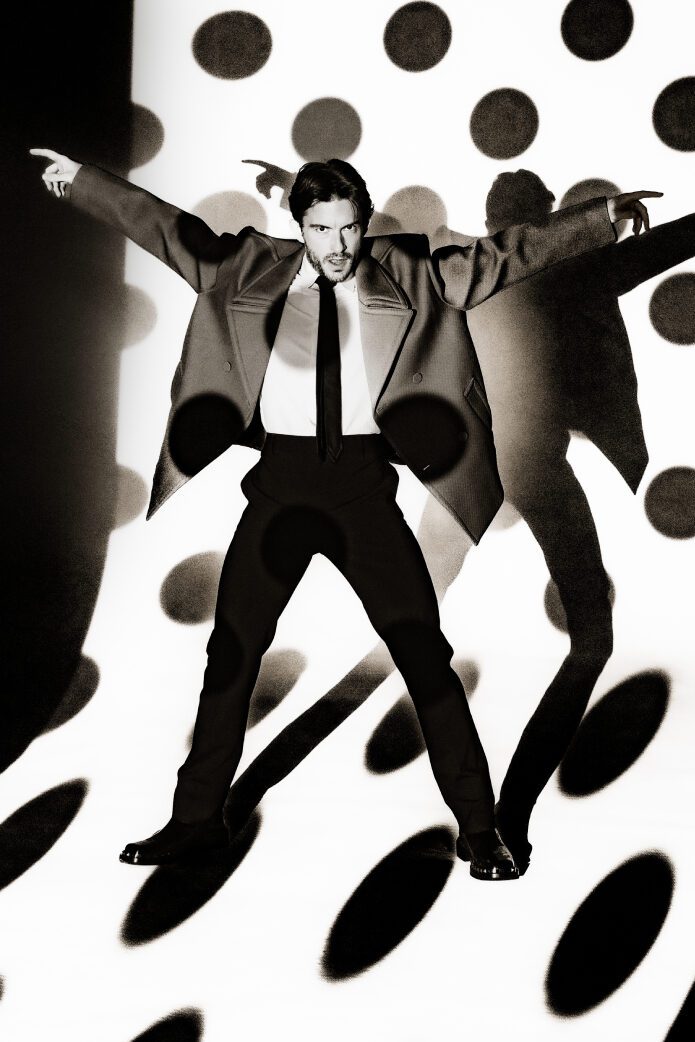
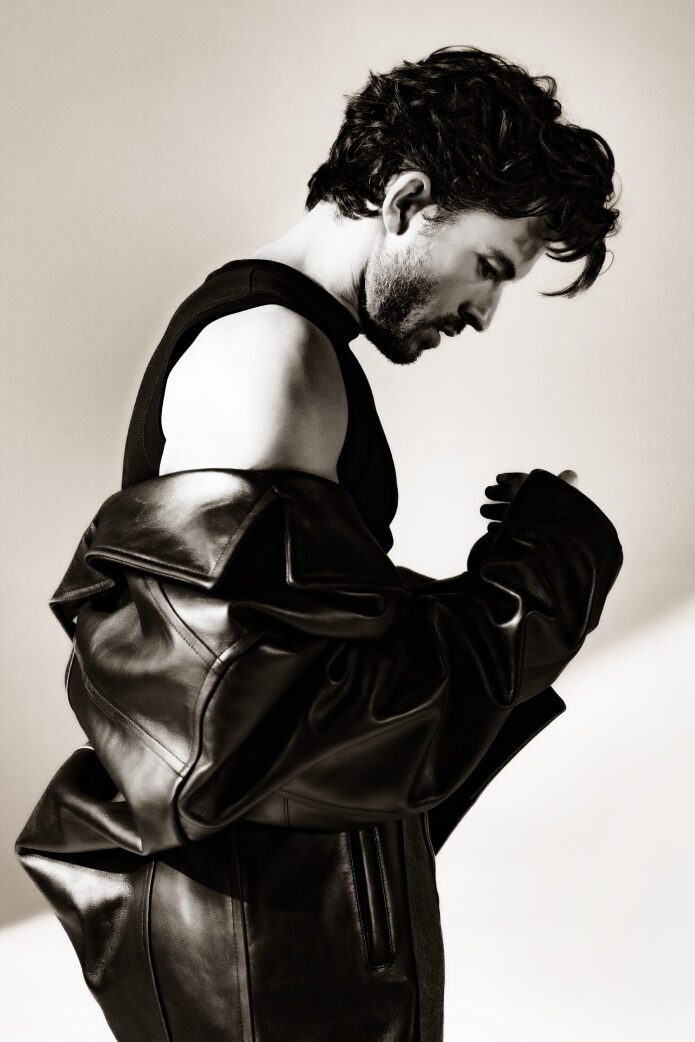
Quite correct; the first episode introduces the sub-dom dynamic between Tim and Hawk with a now-infamous foot-fetish sequence which, unsurprisingly, spawned a plethora of horny headlines (yes, we’re guilty of this) and went viral on social media. The remainder of the season continues to depict gay sex with authenticity which is, sadly, still a surprise in 2023. When we spoke with Nyswaner, he told GAY TIMES that it was important for him to “embrace” sex in the show as a result of his own personal experiences. “When I came out in the 1970s, those were the celebratory days of the gay experience. It was pre-AIDS and we were released. Sex is the way that we expressed our community,” he explained. “That connection that I got to have with other gay men, whether it was one night or a little bit longer, was very powerful to me and gave me joy.”
Bailey says Fellow Travelers came “at the right time”. “Someone asked me after Bridgerton, ‘What do you want to do next?’ and that is an amazing position to be in, having worked for so long to suddenly have real choice in what you do. I knew that I wanted to do a sweeping gay love story because I hadn’t seen it, especially one that’s detailed over eight hours.” While Bailey admits he doesn’t respond to fans on Instagram – with over three million followers, we’ll let him off – he’s read “extraordinary” messages from people who have connected to Fellow Travelers’ story. “People have messaged saying, ‘I’m closeted but watching this is helping me in a way that you might not understand.’ Someone else said it made them come out, and these are people in their 40s and 50s. There’s these lost generations that Fellow Travelers is highlighting, people who are more scared than ever to feel invalidated if they were to finally come out and speak their truth. I’m mindful of the fact that there are people of every age who are striving to live authentically.”
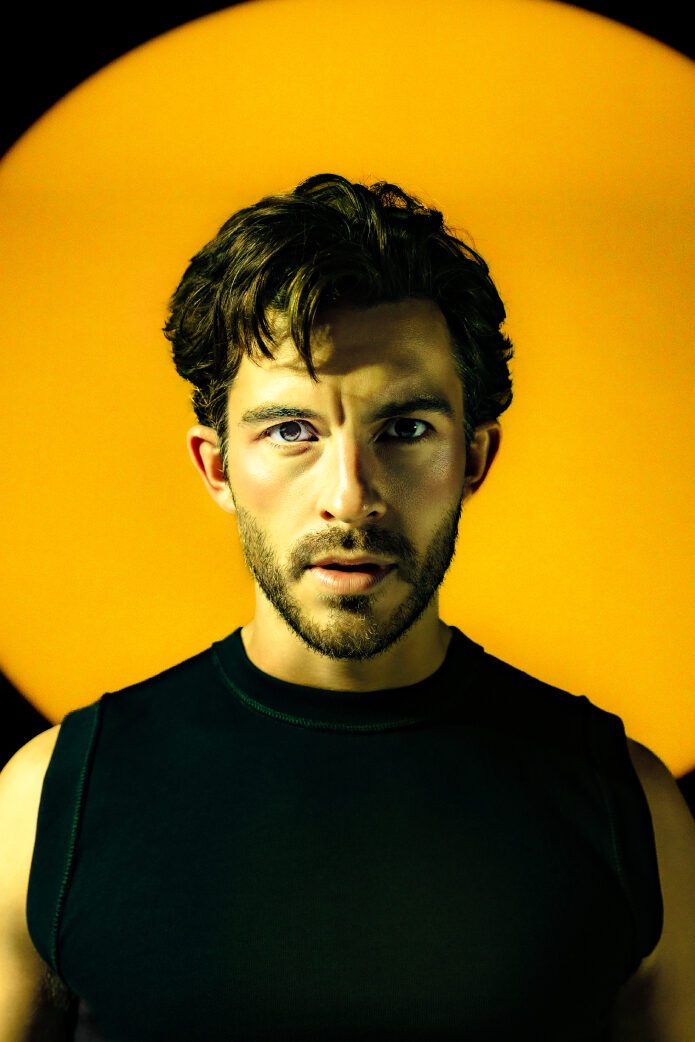
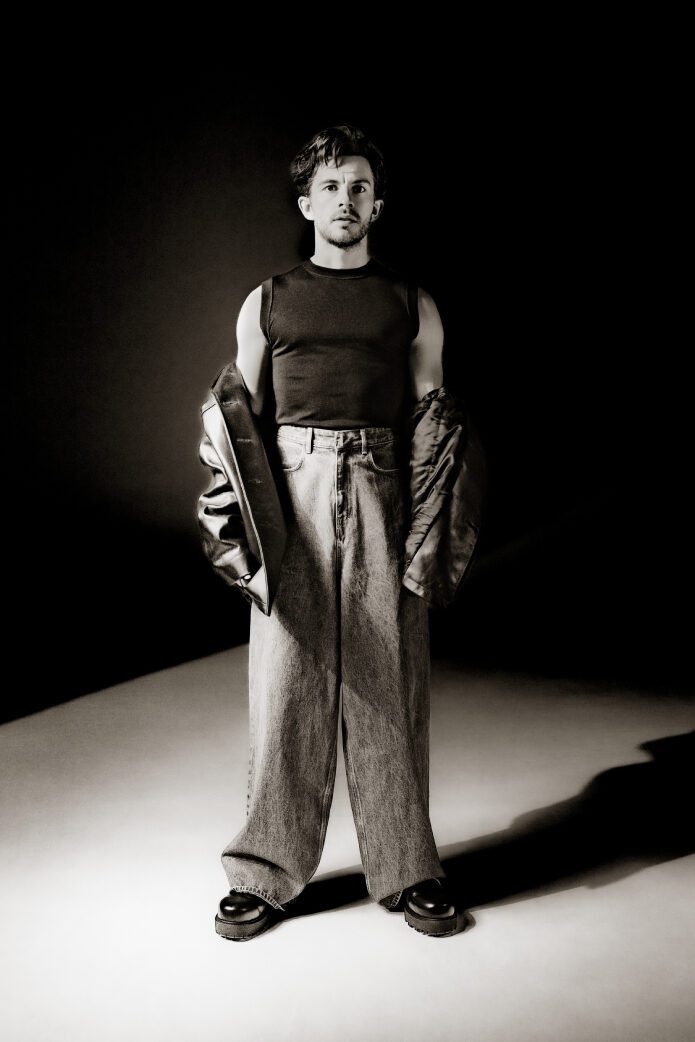
With this in mind, Bailey continues: “It’s funny, people look at the 1950s setting for Fellow Travelers and say, ‘God, how awful must it have been back then?’ We’re incredibly privileged in the west. Fifties America is pretty much everywhere else in the world, and still can be. There’s so many places where people are experiencing that level of oppression and so I’m really proud of Ron’s work because it presents 40 years of an incredible celebration of progression.” In October, Bailey attended the Human Rights Campaign’s 2023 dinner, where he presented Bomer with the Impact Award, which recognises members of the LGBTQIA+ community who are dedicated to championing and advocating queer issues. Bailey’s Bridgerton co-star Golda Rosheuvel also introduced Shonda Rhimes, the recipient of the National Equality Award. His first political gala, Bailey describes the event – a room of over three thousands queer icons, allies and activists – as “enthralling, energised and inspiring” and was another pivotal moment of self-reflection for him. “I was like, ‘Blimey, if you think about the 12-year-old boy who knew something about himself, knew 100 per cent that he was not like other people, to then be in a room where he feels completely galvanised and inspired…’ That sort of joy, ferocity and forward-thinking is so intoxicating and important for people to feel because there’s also so much residue. The vitriol and hate is always bubbling under, so you need organisations like Just Like Us who are going to be going into schools to culture students at a young age and make them think outside of their own narratives they get given at home by their parents or films and stories that aren’t helpful. It’s a better landscape for us all, really.”
With the “cobwebs of old archaic belief systems about what a gay man can and can’t do as an actor,” Bailey is proud to be accepting the Changemaker Award, describing it as a “fully realised vocation to make change”. He’s humble, of course, as he takes the time to acknowledge the internal, grassroots operation at Just Like Us and their objective to revolutionise the experiences of LGBTQIA+ youth. “Once you’ve done the work as an actor in this way, all you have to do it turn up and be there,” he says. “The real work comes from the people who are working at Just Like Us, the charities and support groups who have to constantly chug away to get the funds and be noticed. There’s a glimmer in me that knows the work is done elsewhere. But my God, I’m thrilled that I can use my platform to raise the volume on so many other people’s brilliant policies.” Bailey credits his role as straight lead Anthony in Bridgerton with his power to incite change within the LGBTQIA+ community. As one of the world’s most streamed and acclaimed dramas, Bridgerton’s impact is undeniable. “You get a fanbase and it’s almost like a conga line, where you can then lead those people to other stories which feel really important to you. To be able to go from that to Fellow Travelers and Just Like Us is something I’ll be proud of for the rest of my life.”
Fellow Travelers is now streaming in the UK on Paramount Plus.
